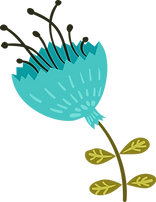Navigating


If you are here to continue your healing journey, welcome! Each week a reflective blog post will be released on the website under the tab “BWHT Blog”. At the end of each blog post there will be a corresponding reflective writing prompt that has been carefully crafted to allow fellow healers to dig even deeper. Lastly, some weeks there will also be a recorded guided meditation that can be utilized to help fellow healers channel their inner peace and serenity. For the best "Black Women Heal Too" experience, each week there will be a reflective blog post to read. At the end of each reflective blog post there will be two additional healing and reflective exercises that includes a guided meditation exercise and a journal prompt.
*Please keep in mind, all the material found on this platform has been designed to help fellow black women explore more in depth their inner selves. *
About
Dr. Lauren E. Downey, EdD, LPCC-S
My dream in creating this platform was born from my own challenging life experiences both professionally and personally. I, along with many other black women have experienced a great deal of loss, grief, sadness, and trauma. In bringing this platform to life, my goal is to encourage and support for every black woman who seeks to continue exploring, growing, and healing. As black women, we should always continue the journey of healing in pursuit of internal joy and contentment, all while holding space for normalizing self-care, mental health, and emotional wellness. The more healing black women continue to do, the more our children, partners, families and culture will thrive.
Sincerely,
A black woman healing too

Statistics on Black Women, Mental Health, and Wellness
“Psychologists can also coach black women on effective self-advocacy strategies and help them learn to express vulnerability without losing the aspects of the Strong Black Woman schema that serve them. You don’t throw out the Strong Black Woman image. You throw out parts of it, but you use parts of it to move a woman toward healing.” -Neal-Barnett

Black women are at least twice as likely to experience an episode of major depression as their white counterparts, men, yet Black women are only half as likely to seek help for their mental health.

Black women experience barriers to seeking mental health treatment at significantly higher rates than any other group of people.

Women are the heads of household in roughly 30 percent of Black homes, compared to 9 percent of white homes.

Negative sociopolitical experiences including racism, discrimination, and sexism put Black women at risk for low-income jobs, multiple role strain, and health problems.

Black women are 1.8 times more likely than Black men to report sadness most or all the time and are 2.4 times more likely than Black men to report feeling hopeless more or all the time.

Black women also face health disparities that translate to a life expectancy at birth that is 3 years shorter than non-Hispanic White women (77.9 years versus 81 years).

Black women are also judged more harshly than White women when they display anger or frustration. A recent study led by Daphna Motro, PhD, a professor at Hofstra University, found that observers are more likely to blame a Black woman’s anger in a workplace setting as internal as opposed to external factors being the cause of the anger.

.png)

